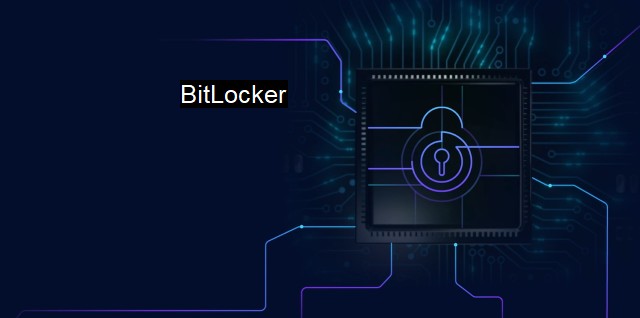What is BitLocker?
Keeping Your Data Safe: An Overview of BitLocker Full-Disk Encryption in Windows Systems
BitLocker is a proprietary full disk encryption feature included with Microsoft's Windows operating system. It is designed to help protect data by providing encryption for entire volumes. The primary purpose is to guard against offline attacks such as unauthorized data access or the exposure that can follow loss or theft, enhancing data integrity and confidentiality.BitLocker was first introduced with Windows Vista to address the growing security concerns around data vulnerability, offering an essential solution for those in sectors with rigorous legislation and data protection requirements, such as healthcare and finance. Soon, this feature evolved from being an optional security add-on to a highly recommended part of routine cybersecurity defenses and antivirus solutions.
BitLocker utilizes the AES encryption algorithm with either 128-bit or 256-bit key to scramble data, making it unreadable in the absence of the correct key. Operating system volumes, fixed data volumes, and removable data volumes can all be encrypted using BitLocker. What makes it noteworthy is the seamless integration with the Windows environment, allowing users to maintain productivity while also ensuring that their data remains secure.
Several methods of authentication are offered by BitLocker during device boot-up, requiring anything from a password, a USB device with a startup key, a combination of both, or even leveraging the Trusted Platform Module (TPM) technology. This multifaceted approach to user authentication ensures enhanced security by adding additional layers to discourage any potential attempts to unlock and decrypt users' data.
Although BitLocker is a robust full disk encryption technique, it is important to note that BitLocker does not replace antivirus or other threat detection security software. It significantly reduces the risk associated with lost, stolen, or improperly decommissioned devices, but it does not protect against malware or system vulnerabilities that could be exploited while the system is running. Therefore, it's necessary to have complementary cybersecurity practices, like having robust and updated antivirus software, firewall settings, scheduled scans, and the installation of security updates regularly.
One significant feature BitLocker affords is its recovery mechanism. BitLocker generates a recovery key during its initialization process if the need arises to decrypt the locked system. The user can safely store this key away, offering access if passwords are forgotten or if unanticipated encryption issues occur.
BitLocker To Go, another important feature offered by BitLocker, allows encryption of data within removable storage. This is particularly handy in today's proliferation of portable devices that carry sensitive information, offering improved ways of securing sensitive data, which can be at significant risks due to the portability and size of these devices.
BitLocker provides robust full disk encryption tightly integrated into Windows Operating Systems. It offers critical security elements, such as data encryption, multifaceted authentication, recovery mechanism, and prevention against offline attacks s, offering much-needed additional security layer to organizational and individual users. BitLocker should only be seen as one specific section contributing to comprehensive cybersecurity defenses. Alignment with other important practices such as the use of up-to-date antivirus solutions and consistent system update practices is equally essential for ensuring all-encompassing security.

BitLocker FAQs
What is BitLocker and how does it work?
BitLocker is a full-disk encryption feature that helps protect data on Windows operating systems. It encrypts the entire hard drive, making it more difficult for unauthorized users to access files without the required password or key.Do I need to have antivirus installed if I am using BitLocker?
Yes, it is highly recommended to have antivirus installed even when using BitLocker. BitLocker only encrypts the data on the hard drive, but it does not protect against malware or other types of cyber threats. Antivirus software helps protect against these types of attacks.Can I use BitLocker on external hard drives or USB drives?
Yes, you can use BitLocker on external hard drives or USB drives. However, the drive must be formatted using the NTFS file system, and the computer must have a compatible version of Windows installed.What if I forget my BitLocker password or lose my recovery key?
If you forget your BitLocker password or lose your recovery key, you may not be able to access the encrypted data on the drive. It is important to keep the recovery key in a safe place, such as a secure password manager, or print it and keep it in a secure location. If you lose access to both the password and recovery key, you may need to contact a professional data recovery service to attempt to retrieve the lost data.| | A | | | B | | | C | | | D | | | E | | | F | | | G | | | H | | | I | | | J | | | K | | | L | | | M | |
| | N | | | O | | | P | | | Q | | | R | | | S | | | T | | | U | | | V | | | W | | | X | | | Y | | | Z | |
| | 1 | | | 2 | | | 3 | | | 4 | | | 7 | | | 8 | | |||||||